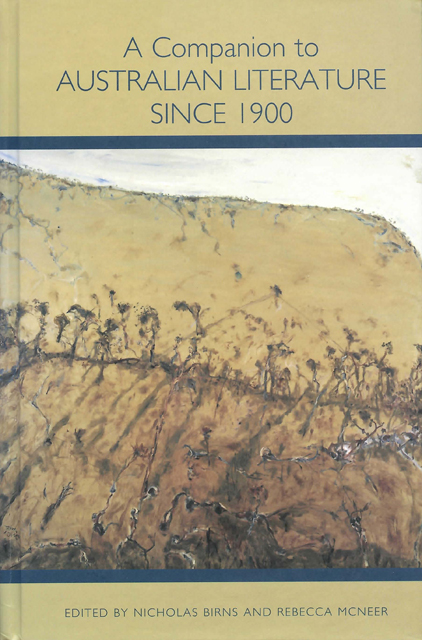Book contents
- Frontmatter
- Dedication
- Contents
- Chronology of Main Events in Australian History, 1901–2005
- Acknowledgments
- Note on the Cover Illustration and Artist
- Introduction
- Part 1 Identities
- Part 2 Writing Across Time
- Part 3 International Reputations
- Part 4 Writers and Regions
- Part 5 Beyond the Canon
- Notes on the Contributors
- Index
9 - Writing the Nation, 1900–1940
Published online by Cambridge University Press: 10 March 2023
- Frontmatter
- Dedication
- Contents
- Chronology of Main Events in Australian History, 1901–2005
- Acknowledgments
- Note on the Cover Illustration and Artist
- Introduction
- Part 1 Identities
- Part 2 Writing Across Time
- Part 3 International Reputations
- Part 4 Writers and Regions
- Part 5 Beyond the Canon
- Notes on the Contributors
- Index
Summary
The Bulletin and the Lawson-Furphy Tradition
And the sun sank again on the grand Australian bush — the nurse and tutor of eccentric minds, the home of the weird, and of much that is different from things in other lands.
— Henry Lawson, “The Bush Undertaker”Archibald G. Stephens of the Bulletin, in reviewing Henry Lawson’s first complete book, Short Stories in Prose and Verse (1895), virtually canonizes the young writer: “Henry Lawson is the voice of the bush and the bush is the heart of Australia” (quoted in Barnes 2). He thought he saw in Lawson the vanguard for a rising Australian literature representing the democratic culture of the new Australian nation.
By the 1890s, the Bulletin had firmly moved into its role as the voice of Australia. The magazine had published its version of the Australian Dream amid the nationalistic fervor that created the Legend of the Nineties. The publication stipulated the need for a republican form of government, the secularization of education, and one person, one vote — all in the interests of a “united Australia and protection against the world” (Palmer, 89). In 1887, the Bulletin had published a manifesto for this new Australian in a new land:
All white men who come to these shores — with a clean record — and who leave behind them the memory of the class-distinctions and the religious differences of the Old World … are Australians. (White, 81)
The call for a “clean record” indicates a conscious effort to obliterate the convict past; in addition, these Australians must be “white” and thus removed from taint of the lesser races: “No nigger, no Chinaman, no lascar, no kanaka, no purveyor of cheap coloured labour is an Australian” (White, 81).
This national type was best served by the bushman, who by 1890, in the wake of improved transportation and communication, was already becoming a figure associated with the past. The traits of the mythic bushman became encoded as the traits of the national type, “not,” in Russell Ward’s view, “because most Australians ever possessed these traits but because the minority of bush-dwellers that did differed most graphically from the average Briton and so were seen as identifiably Australian.”
- Type
- Chapter
- Information
- A Companion to Australian Literature since 1900 , pp. 157 - 172Publisher: Boydell & BrewerPrint publication year: 2010
- 1
- Cited by

